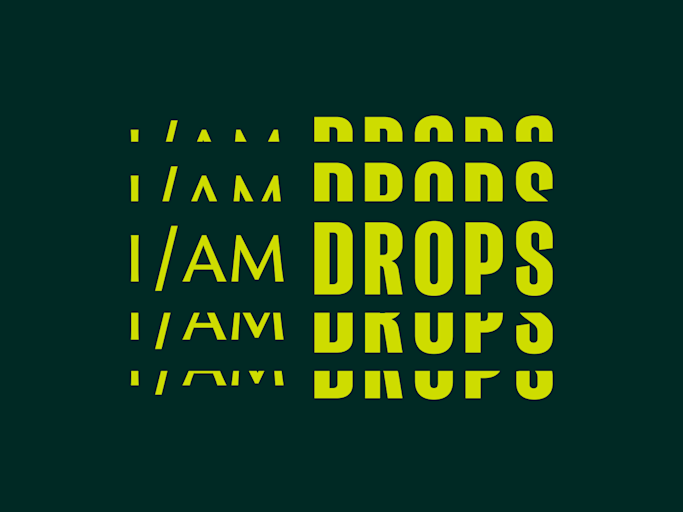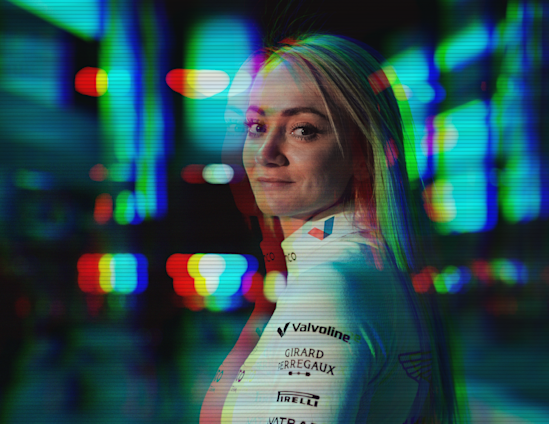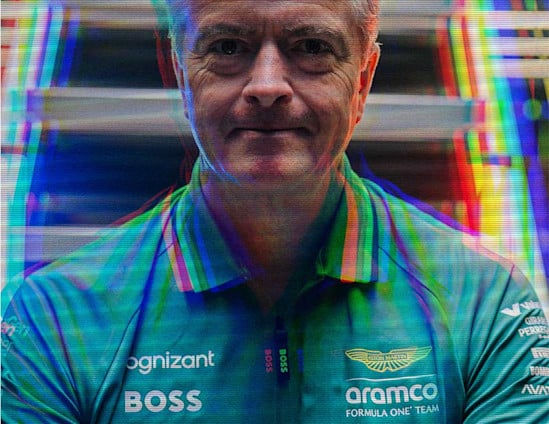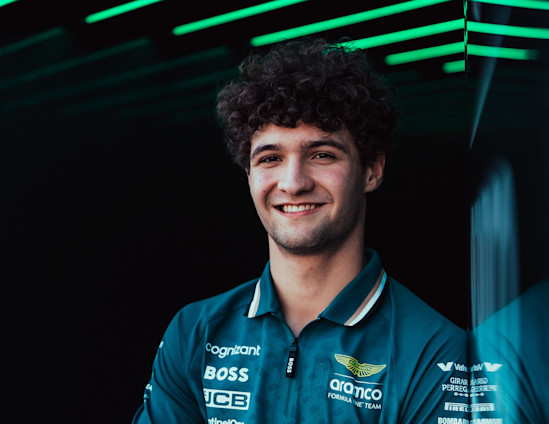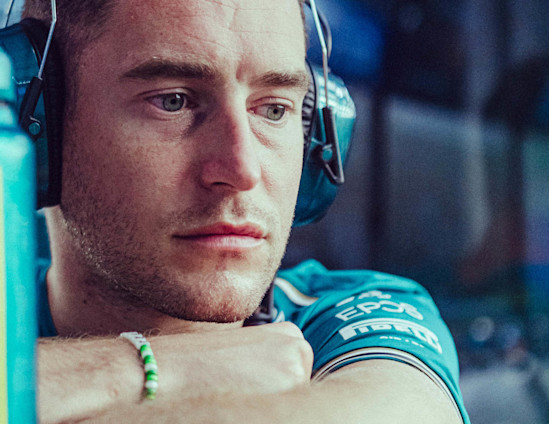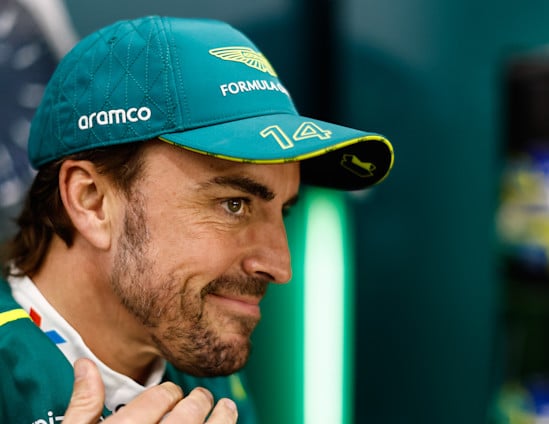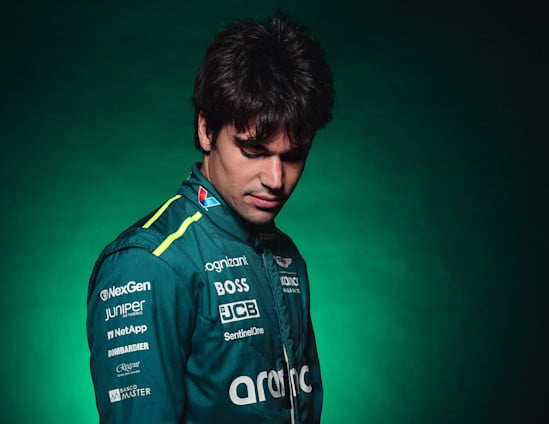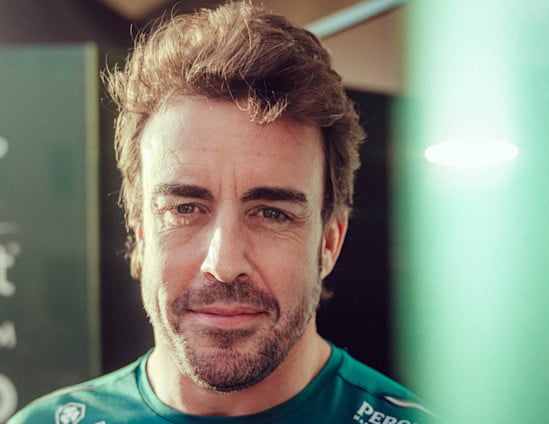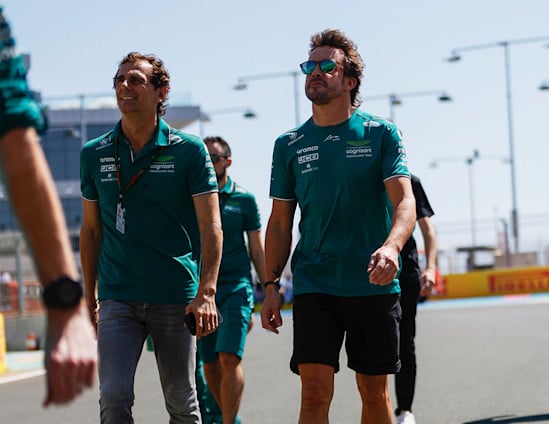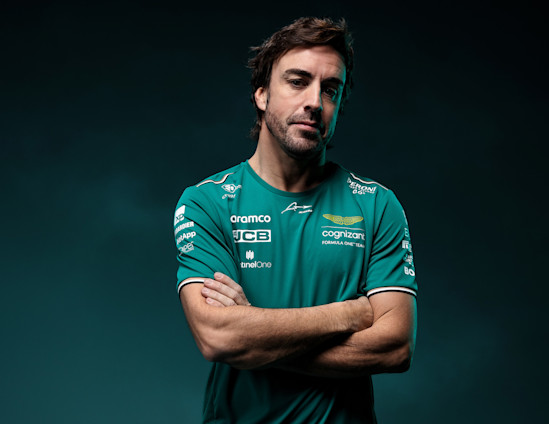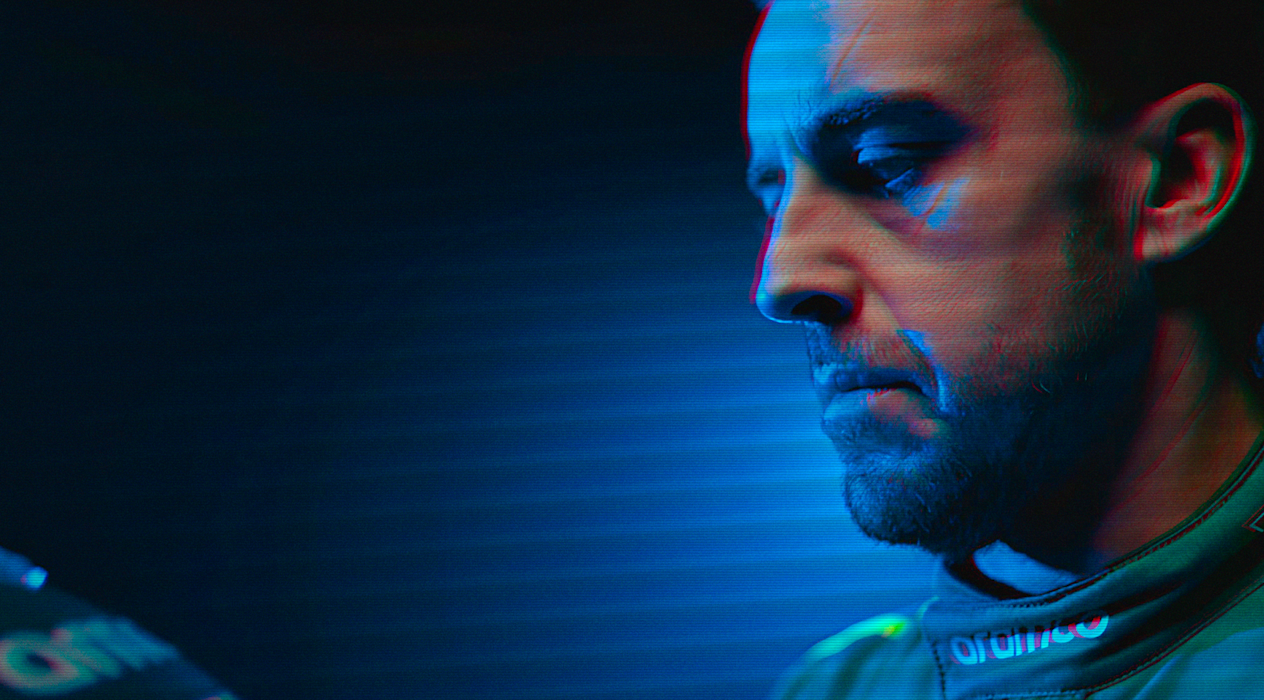
Monaco, Le Mans, Indianapolis, Dakar… Fernando Alonso has fought for victory in the sport's most prestigious races, but natural talent alone is not enough to succeed across so many disciplines. Step inside the mind of the multi-discipline World Champion as he opens up about defying time, logic and even the FIA's race director through a relentless cycle of reinvention.
10,000 hours.
Bestselling author Malcolm Gladwell proposes that this is the amount of practice needed to master a skill in Outliers: The Story of Success. Small wonder that having spent more than this amount of time behind the wheel of a racing car, over the course of a career spanning more than three decades, Fernando Alonso suggests he can reach a state of mind where he can drive "automatically" – even if it is just for long enough to watch his team-mate Lance Stroll pull off an overtake on the big screen.
Russia '21, Miami '23, São Paulo '23, China '24. What do they all have in common? They are all Grands Prix contested by Fernando, but they are also moments, in a singular career boasting many, where Fernando has done things differently to stay ahead of the competition – to be An Original.
As we shine a light on Originals, those who continue to strive for better, together with our partner Valvoline, we sat down with the skilful Spaniard to explore these moments, among others, and examine his racing mind – or as he calls it, his "hard disk".
1 | The part where he gets defensive
From Lap 55 to the chequered flag at the São Paulo Grand Prix last season, you and Sergio Pérez were split by less than a second. You soaked up pressure lap after lap, crossing the finish line just 0.053s ahead after a defensive driving masterclass coupled with a clinical attack on the final lap to clinch the final podium. Positioning the car in the right places, deploying battery power at the right time, constantly changing lines; how do you strike the perfect balance between defence and attack?
"You learn back in the days of karting how to defend and how to explore any possibility and any strength of your car. It can be the top speed, it can be the traction, it can be the performance in the high-speed or low-speed corners. And then you choose different parts of the circuit where you have to go very fast to avoid any attack from the car behind, and some parts of the circuit where you have to save a little bit: you can save the tyres, you can save the battery, you can save a little bit of fuel and use it later in the race.
"There are always things that if you play a little bit more conservatively early on, you will have an advantage later in the lap or the stint. You have to process these thoughts and make these decisions very quickly in a race, you have to change your approach lap by lap because the car is not the same – it doesn't weigh the same, there is less fuel in the car and the tyres are older. You're constantly thinking in the car about ways to attack and defend."
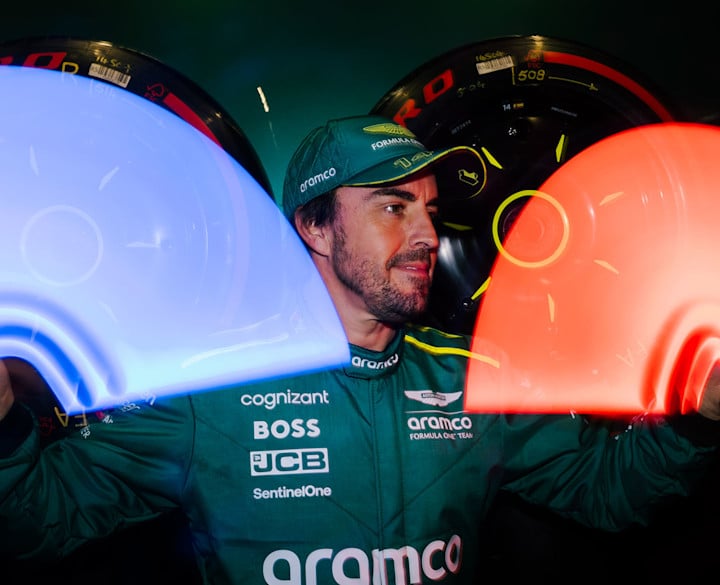
It's like your brain is a hard disk, everything you know is on that hard disk and you access it when you need it in those moments.
2 | The part where he watches TV
"Which position is Lance? Great move into Turn One," was your message over team radio during last year's Miami Grand Prix when you watched Lance overtake Alex Albon on the big screens around the circuit. Driving an F1 car is an assault on the senses yet we frequently hear you asking for information about other cars over team radio. How do you have the capacity to think beyond just driving the car fast?
"Well, we try to drive the car fast! There are moments in the race when you enter a state of mind where everything comes automatically and you’re able to drive the car at 99 per cent without using your full mental capacity. You start asking for information about other cars, about your team-mate.
"Sometimes on the big screens, you can see a direct competitor making a pitstop and they are going for the Hard tyre so immediately you think, 'OK, they’re going for the Hard tyre, so they plan to go to the end? Or are they planning to make another stop, as it was predicted in our simulation?'
"You exchange this information with the team because maybe you have a feeling in the car that matches what the others are doing – you're trying to work out whether what you predicted in the strategy meetings is or isn't matching up to reality. It's about making sure everything is still making sense in the moment of truth when you're racing."
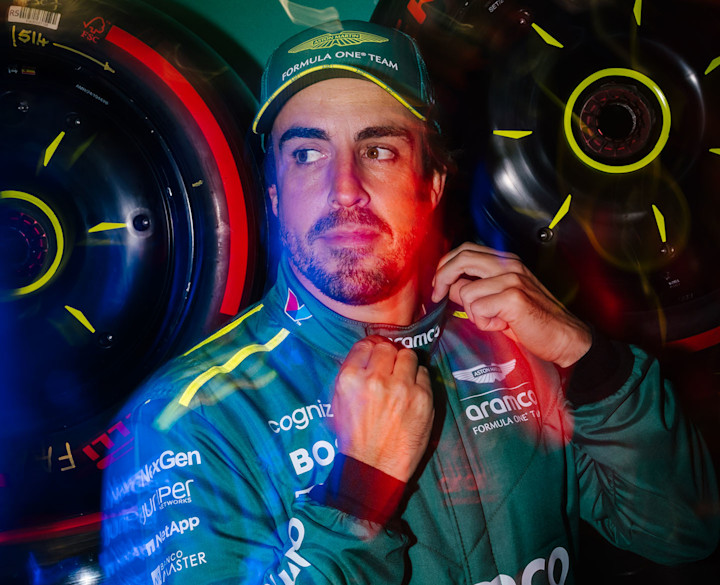
Very early in my career, I was changing vehicles every hour, every day, every week, and I learnt how to extract the maximum from different machinery.
3 | The part where he almost loses it
Lap 48 of this year's Chinese Grand Prix. You're hunting Lewis Hamilton down for eighth place but run a fraction wide onto the gravel on the exit of the last corner, causing the car to lose traction at the rear. The resulting snap of oversteer looks certain to tip you into a spin, but somehow you save it with an armful of opposite lock and by backing off the throttle. How does more than three decades of experience behind the wheel of racing cars keep you pointing in the right direction?
"Every time you're in a racing car, you're learning something. It can be more useful or less useful in that particular moment, but later down the line you maybe will encounter the same conditions, the same level of grip, the same level of stress, the same car balance.
"In that moment of oversteer or when you have a front lock-up, your memory, a muscle memory, kicks in based on what you've experienced before and you instantly react the way you need to.
"It's like your brain is a hard disk, everything you know is on that hard disk and you access it when you need it in those moments.
"The more laps you do in a racing car – the more experience you have of different cars, of different circuits, of different conditions – can be an advantage."
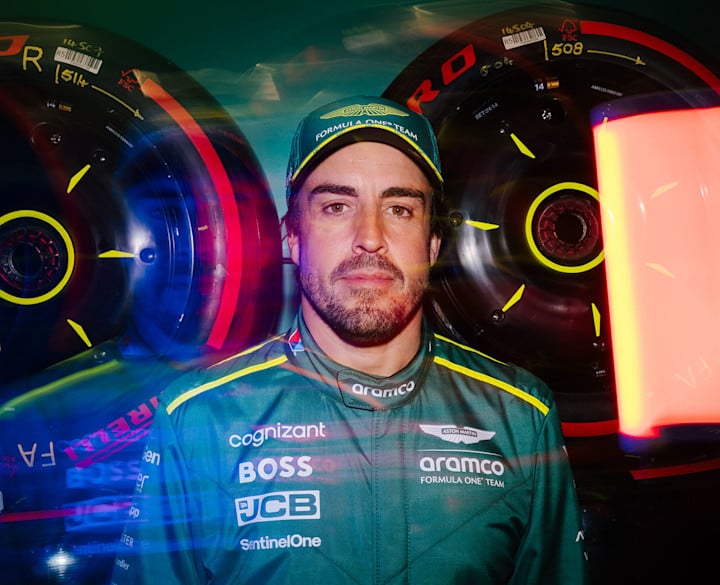
Right from the start, having to adapt was normal. You have to reinvent yourself every season, every race, to try to outperform your competitors.
4 | The part where he adapts
Stamp on the brakes, super-aggressive turn-in, floor the throttle on exit. The distinctive driving style you developed in the early noughties, enabled you to extract the maximum performance from the Michelin tyres. You've gone on to master different types of tyres, from Bridgestones to Pirellis, with a driving style far smoother than the one you championed on the Michelins. Why are you so adaptable and versatile behind the wheel?
"The ability to adapt comes from a very young age. I remember when I was karting, from six to 11 years old, I was just racing in my home region in northern Spain. The weather is very changeable there, but we didn't have wet tyres or dry tyres. We only had the tyres that came with the go-kart when we bought it, so we always used that tyre whatever the weather conditions.
"I was experimenting and had so much experience for my age back then; every time there was a go-kart that came to us with a problem, I would jump in and provide feedback on what was wrong with it. Very early in my career, I was changing vehicles every hour, every day, every week, and I learnt how to extract the maximum from different machinery.
"From the age of six, I was testing karts that were for much older kids than me – even adults. They didn’t fit me so I was stretching to drive them with my feet and hands – my arms were stretched out up above my helmet – but I was achieving competitive laptimes and then I would jump back into my go-kart.
"Right from the start, having to adapt was a normal thing in my career. You have to reinvent yourself every season, every race, to try to outperform your competitors."
5 | The part where he does the impossible
Sochi 2021. You took the escape road at Turn Two on the opening lap of the Russian Grand Prix to not lose any positions. It was a pre-meditated move, one you had rehearsed before the race on your reconnaissance laps to the grid, but one deemed by the stewards to not require any investigation. How do you find grey areas like this in the rulebook to use as an opportunity to stay ahead of the competition?
"I'm always alert to things that can bring an advantage or prevent a disadvantage.
"I see opportunities. Every time there is an opportunity, I explore it and sometimes there are a couple of moments where there is a sense of justice, where I try to find answers for something that I see as wrong or as an opportunity that can be explored.
"You raise it with the race director or your team, telling them that this can be done and should not be possible. Sometimes it's banned for the future. Sometimes it stays open, and you see someone else using it to their advantage, so you remember it for the future and in the next opportunity maybe you use it to your advantage.
"I remember Sochi well. We raised the point in the drivers’ briefing, but the race director said that it was not possible because the bollards that were placed in the run-off area were positioned to make the cars go slower than if you were to stay on the racing track. We said, 'We don't think so. If you go there, you are faster than on the racing track,’ and the race director said, 'No, no, it’s impossible.' And we said, 'OK, on Sunday, we try.'"
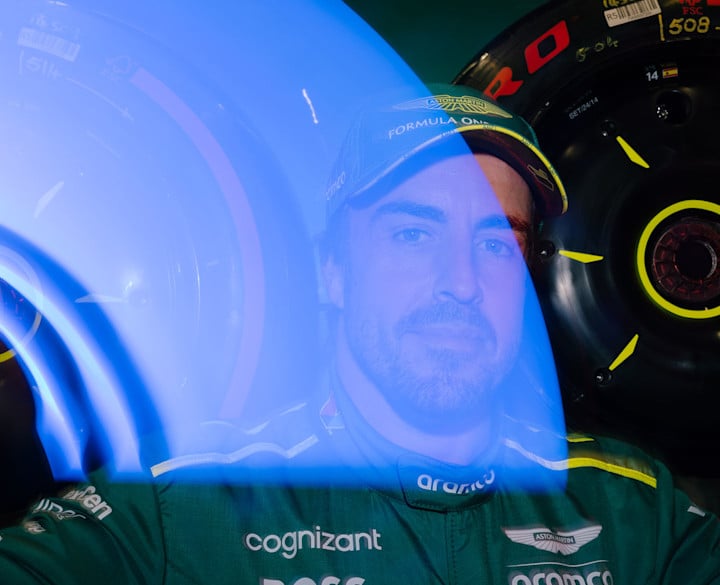
I don't know exactly in which area or what specific part of an F1 weekend, but I'm sure my experience and learnings from other series made me a better driver.
6 | The part where he focuses on what matters
Every aspect of a Formula One car can be improved – constantly analysed, adapted, refined and redefined in the pursuit of performance – but with a budget cap, aerodynamic testing restrictions and limited time on the track, how do you know what will have the biggest impact on performance and therefore what to focus on?
"You're so focused on laptime, so focused on performance, that identifying the parts of the car that you should prioritise improving to go faster is not that difficult. From the outside, when you see a racing driver jump into a car and then immediately say what needs improving, it's very difficult to understand how they do that, but when you're the one driving the car, you negotiate a corner, you go on the power, the rear wheels are spinning and you are not moving forward, you know you need more traction, for example.
"You feel frustrated that you are not exiting the corner faster, and you want to stop the stopwatch at the finish line that little bit faster than before. Your natural instinct tells you exactly what the car needs to go faster and you immediately feed that back to the engineers.
"At the beginning of your career, you just provide the information and feedback as the team tests different things. Towards the end of your career, because you’ve tested so many different modifications to the car – softer suspension, stiffer suspension, more rear wing, less rear wing, more camber, less camber – you develop an understanding of how the car will respond to that specific change at that circuit in those conditions.
"You provide feedback on the areas of the car that need improving, but are also able to suggest the solution: 'Do you remember when we tested the ride height of the car at this height at this circuit in these conditions, and we immediately gained more traction? It feels exactly like that, and we need to make that kind of setup change.'"
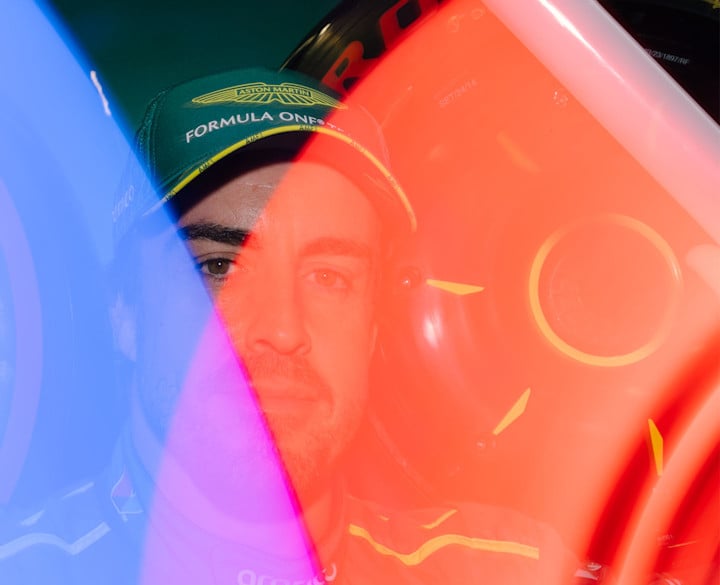
I am never happy with the position I am in. I want to be better tomorrow, and I want to be better next week and next month. This is what has kept me driving for so long.
7 | The part where he is humble
You've competed in myriad different motorsport series and events outside of Formula One, including the Indianapolis 500, 24 Hours of Le Mans, and Dakar Rally. What has it taught you?
"I've learnt a lot of things in other series and other categories. The way that you have to approach a new discipline like Indy 500 or endurance racing, is by starting from zero. You have to start from scratch because what you learn in F1 is not applicable in terms of a driving style for something like the Indy 500, endurance racing or off-road rally. When you are well established in F1, or any sport, it’s easy to fall into the trap of not improving or learning new things because you think that you know everything already.
"You have to be humble in your approach to a new series and when you are, it's like being a beginner or rookie again: you are ready to absorb all the information that the specialists in that series are giving to you. Being humble, absorbing everything I could from racing in those different series, made me a better F1 driver. I don't know exactly in which area or what specific part of an F1 weekend, but I'm sure my experience and learnings from other series made me a better driver."
8 | The part where he wants to be better
Double Formula One World Drivers' Champion, World Endurance Champion, two-time 24 Hours of Le Mans winner, 24 Hours of Daytona winner, your list of accolades is long. Are you reaching the limit of what you want to achieve in motorsport?
"There are always things to be achieved. Formula One is my focus right now. I would love to win the Formula One World Championship with Aston Martin – it would be the highlight of my career and probably my life.
"Winning the Dakar Rally is still on the wishlist. The Indy 500, of course, but I'm not sure if I will do it again in the future – but Dakar I will. It will be unprecedented to win the Formula One World Championship, Dakar Rally and 24 Hours of Le Mans.
"It all comes back to the same thing: I always want to improve – to become better is the main motivator throughout my career. I am never happy with the position I am in. I want to be better tomorrow, and I want to be better next week and next month. This is what has kept me driving for so long."
Valvoline
Originals Never StopOriginals Never Stop
Amplify your fan experience
From exclusive collabs to once-in-a-lifetime prizes, I / AM DROPS is a new series of unique and ultra-limited moments and fan experiences.
Sign up for I / AM or sign in to unlock.
